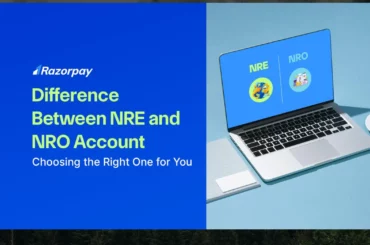NEFT stands for National Electronic Funds Transfer, facilitates fund transfers between any two NEFT-enabled bank accounts in India on a one-to-one basis. These transfers occur through electronic messages. The Reserve Bank of India (RBI) has operated the NEFT electronic fund transfer system since November 2005. It’s a secure and convenient way to send money, without needing to visit a bank branch.
Who Can Use NEFT?
Individuals, businesses, and organizations with an account at an NEFT enabled bank in India can use NEFT to transfer money to someone else with an account at a different NEFT enabled bank in India.
Here’s a breakdown of who can use NEFT (National Electronic Funds Transfer) for their money transfers:
1. Individuals with bank accounts
If you maintain a savings or current account with a bank that is part of the NEFT network (which includes most banks in India), you can initiate NEFT transfers to other accounts.
2. Companies and corporations
Businesses also have the option to utilize NEFT for transferring funds between accounts or to vendors and clients.
3. Individuals without bank accounts
Even If you do not have a bank account, you can still utilize NEFT for money transfers. You will need to visit a branch of a bank participating in NEFT and deposit cash. The maximum amount you can transfer through this method is ₹50,000 per transaction.
Related Read: What is the Difference Between NEFT, RTGS, And IMPS
Advantages of NEFT
Here are some of the benefits of using NEFT:
- 24/7 Availability: Transfer money anytime throughout the year.
- Pan-India Coverage: Send funds to any account in India.
- Convenience: Initiate transactions from anywhere (online banking, mobile banking).
- No Transaction Limit: The RBI allows you to transfer any amount daily, subject to your bank’s specific limits.
- International Transfers: Send money to Nepal (may have additional requirements).
- NRE/NRO Accounts: Transfer funds to Non-Resident External (NRE) and Non-Resident Ordinary (NRO) accounts.
- No Branch Visits Required: No need to visit your bank branch to initiate an NEFT transfer.
- Faster than Traditional Methods: NEFT transfers are generally processed faster than checks.
- Security: NEFT secure electronic network regulated by the RBI, minimizing the risk of theft or loss associated with cash transfers.
Related Read: What is TPT Transfer in Banking? – Methods, Limit & Fees
How NEFT Transfer Works?
Here is the step-by-step process:
1. Initiation
To initiate an NEFT, the sender needs to provide the beneficiary’s details, like the beneficiary’s name, bank name, branch name, account number, and IFSC (Indian Financial System Code) to their bank. NEFT can be initiated by logging in to Internet banking, mobile banking or by visiting a bank branch in person.
2. Processing
After the sender initiates the transfer, the bank prepares a detailed message containing the necessary transaction details, like account number, bank name, IFSC code, etc. and forwards it to their NEFT Service Centre. These centres act as a central hub for processing NEFT transactions. It collects and pools all NEFT transactions received from various branches and customers.
3. Batching
The NEFT Service Centre groups the transactions destined for different banks together into batches after collecting and pooling them. Batches are settled at about the same time every hour, helping set off and settle transactions efficiently. Batching facilitates the banks to settle transactions easily with the respective banks and handle large amounts of money.
4. Clearing and Settlement
The NEFT’s central system, which acts as a clearing house and is managed by the RBI, receives transaction batches from all the service centres. It sorts the batch of transactions based on the beneficiary’s bank. It directs settlement instructions to both the sender’s and the beneficiary’s banks. This process ensures a smooth transfer of funds between banks.
5. Funds Movement
Based on the settlement instructions received from the NEFT’s central system, the sender’s bank begins a debit transaction and deducts the specified amount from their account. The RBI is in charge of a country’s financial stability, and these funds are transferred to it. It holds the funds temporarily before forwarding them to the beneficiary’s account.
6. Crediting Beneficiary
The RBI sends the funds to the beneficiary’s bank, which credits the specified amount to the beneficiary’s account. This ensures the funds are securely delivered to the recipient.
7. Confirmation
Both the sender and the beneficiary receive confirmation messages from their respective banks regarding successful NEFT transactions.
Related Read: What is Stop Payment and How Does it Work?
Details Required for NEFT Fund Transfer
The details required for an NEFT fund transfer are:
- The beneficiary’s name
- The bank account branch
- The bank account name
- The bank account number
- The IFSC Code
- The amount to be remitted
How to Transfer Money Through NEFT?
Here is the process you need to follow:
- STEP 1: Log in to your bank’s internet banking portal or mobile banking app. Alternatively, visit your bank’s branch to initiate the transfer.
- STEP 2: Navigate to the funds transfer section after you have logged in to your bank’s Internet banking portal or mobile application.
- STEP 3: Find “NEFT” or “National Electronic Funds Transfer”.
- STEP 4: Fill in all the necessary details of the beneficiary, including his/her name, bank account number, IFSC of the bank branch, and the amount that needs to be transferred.
- STEP 5: Double-check the beneficiary’s details and the transfer amount to ensure accuracy in the transaction process.
- STEP 6: Your bank may require you to provide security information like transaction passwords or one-time passwords to ensure the authentication and safety of your transaction.
- STEP 7: After verifying all necessary details, proceed to confirm the NEFT request.
- STEP 8: Depending on your bank’s interface, you may be asked to review the transaction details before finalising the transfer.
- STEP 9: After confirming the NEFT, you can expect to receive an acknowledgement or confirmation message indicating that the transfer request has been initiated successfully.
Remember that NEFT transactions are processed in batches throughout the day. Depending on when you made the request, it may take a few hours for the transfer to be completed.
Once the NEFT is successfully processed, the recipient will receive the funds in his/her bank account.
The recipient’s bank will promptly notify them of the credit transaction after successful processing.
Read More About: How to Transfer Money through NEFT?
What Are the NEFT Charges?
NEFT transactions are generally free for the receiving bank. For sending banks, the RBI eliminated processing fees in July 2019. Additionally, many banks offer free online NEFT transfers for savings accounts as of January 2020. However, some banks may still charge fees for NEFT transfers, typically capped at:
- ₹2.50 + GST (for transactions up to ₹10,000)
- ₹5 + GST (for transactions above ₹10,000 up to ₹1 lakh)
- ₹15 + GST (for transactions above ₹1 lakh up to ₹2 lakh)
- ₹25 + GST (for transactions above ₹2 lakh)
For information on NEFT transfers to Nepal, please refer to the RBI website
Read More: NEFT Payment transaction and Service charges
What Is the NEFT Transfer Time?
Online NEFT transfers may be done round-the-clock 24*7 and 365 days off all year. Bank branches follow a different schedule for NEFT timings. Each bank may have its cut-off times, influenced by internal policies and RBI guidelines. It allows the sender to initiate NEFT transactions at any time.
Read More: Updated 2024 NEFT Transfer Timings and Holidays
Is There a NEFT Limit on Fund Transfers?
The Reserve Bank of India, the governing body for NEFT, doesn’t set any minimum or maximum limits on transfer amounts. This essentially means you can transfer any amount through NEFT. However, individual banks may impose limits based on risk perception and operational considerations.
Related Read: What is the IMPS Transfer Limit Per Day?
Tips for Using NEFT
Here are some tips to follow for a seamless NEFT money transfer:
1. Double-check Beneficiary Details
Confirm the beneficiary’s name, account number, and IFSC code are entered accurately to avoid any issues in the processing of NEFT.
2. Add the Beneficiary Beforehand
Adding recipients upfront through the Internet or mobile banking can save time (if your bank requires it).
3. Schedule NEFT (if available)
Some banks offer the choice to schedule NEFT for future dates, which can help with recurring payments.
4. Know the Transaction Limits
Some banks impose the NEFT transaction limit, remain aware of this and plan accordingly for larger transactions.
5. Consider Transfer Timings
Though the NEFT transactions can be done 24/7, they are processed in batches. Initiate the transactions during banking hours to expedite the transaction.
6. Review Transaction Fees
Depending on the bank and the amount you wish to transfer, be aware of the potential fees associated with NEFT. Know your bank’s charges beforehand.
7. Maintain Transaction Records
Save the confirmation of NEFT for future reference. You may require it as evidence in case of a dispute.
8. Use Secure Channels
Conduct NEFT through authorised bank websites or mobile applications. This will prevent you from phishing and ensure a secure transaction.
9. Beware of Unfamiliar Requests
Avoid initiating NEFT for unknown individuals or companies to prevent potential fraud.
10. Report Errors Promptly
In case of any issues, reach out to your bank immediately for assistance.
Related Read: What is the Difference Between IMPS and NEFT Fund Transfer?
What Is the Difference Between NEFT, RTGS, and IMPS?
When running a business or managing finances, it’s crucial to understand electronic funds transfer systems like NEFT, RTGS, and IMPS.
The comparison mentioned in the table below will help you to understand the differences:
| Feature | NEFT (National Electronic Funds Transfer) | RTGS (Real Time Gross Settlement) | IMPS (Immediate Payment Service) |
| Advantages | Operates 24/7
No maximum transfer limit Well-suited for small and medium transactions |
Real-time transfer
Best for large amounts No upper limit on the transaction amount |
Instant transfer
Available 24/7 Supports small-value transactions |
| Limitations | Can be slower than other methods
Not ideal for high-urgency transactions |
Requires a minimum amount (usually higher)
Not ideal for small transactions |
Generally has a lower maximum transfer limit compared to RTGS
Dependent on mobile/internet connectivity |
Read More: NEFT vs RTGS: Which One Should You Use to Transfer Money
Conclusion
It is crucial to understand NEFT’s meaning as it is the best and safest mode of transferring funds electronically. With NEFT, transactions are processed in batches throughout the day, and once processed, the recipient will receive the funds in their bank account, with their bank notifying them of the credit transaction. Utilise it as it comes with low charges, can accommodate large amounts of money, and can be conducted throughout the day. Use NEFT to ease funds transfers in your business operations or personal needs.
Frequently Asked Questions (FAQs)
1. Do all Banks Provide NEFT Service?
All major banks provide NEFT services. However, there may be some banks that do not offer transactions through NEFT.
2. How much time does it take to settle NEFT transactions?
NEFT transactions usually settle within 1-2 hours, although the exact time may vary depending on the bank’s processing time and the time of day the transfer has been initiated.
3. Can I make a NEFT transaction on the weekend?
Yes, NEFT transactions can be done on weekends. However, the availability of the service may vary depending on the bank and the processing timings.
4. Is NEFT available 24 * 7?
Yes, NEFT is available 24×7, except for bank holidays and Sundays, as per the recent RBI guidelines.
5. Can NEFT be Cancelled?
Yes, the sender can cancel NEFT transactions before they are settled. The cancellation request needs to be initiated by the sender’s bank, and it can be done either online or by visiting the bank branch.
6. What is NEFT’s full form?
NEFT stands for National Electronic Funds Transfer.
7. How to know the NEFT sender details?
To know the sender details in NEFT, one should know the sender’s bank account number and IFSC code.
8. How to fill out the NEFT form?
A basic NEFT form requires the date and the following critical information:
- Your bank account details, including your account number, branch name, and IFSC code;
- Beneficiary details, including their name, account number, and IFSC code; the amount to be transferred and finally, signing the form to approve the transaction.
9. How to check NEFT Status?
Log in to your Internet banking account and navigate to the fund transfer section. The NEFT transaction status will provide updates or confirmations. Alternatively, contact your bank’s customer service for assistance.
10. Can I schedule NEFT transfers for a future date?
Yes, you can schedule it while adding the beneficiary for the NEFT transfer.
11. Can I use NEFT to transfer funds internationally?
No, NEFT cannot transfer funds internationally. It is a domestic electronic fund transfer system.
12. How secure are NEFT transactions?
NEFT transactions are secure as they are facilitated by the RBI and are conducted through a secure electronic payment system.
13. What happens if I provide incorrect beneficiary details in an NEFT transfer?
Failure to provide correct beneficiary details for an NEFT leads to the crediting of funds to the wrong account or recipient. However, the amount will be returned to the originating bank within days. To retrieve your money, contact your bank immediately and provide the necessary information.
14. Are NEFT transactions subject to regulatory guidelines or limits set by the Reserve Bank of India (RBI)?
Yes, NEFT is well-regulated according to the guidelines and limits offered by the RBI. The RBI NEFT Regulations, 2005, regulates the NEFT system.




